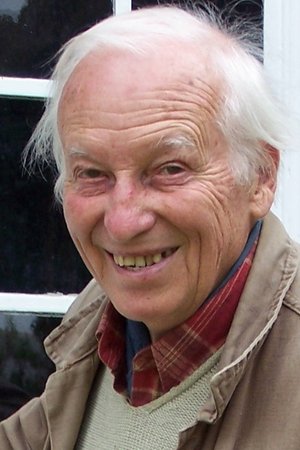Jean-Loup Trassard (b. 1933)
Birthplace:
Saint-Hilaire-du-Maine, Mayenne, France
Born:
August 11, 1933
Jean-Loup Trassard (11 August 1933, Saint-Hilaire-du-Maine) is a French writer and photographer. He says of himself that he is a "writer of agriculture." Since 1961, he has been publishing short texts, narratives, photographs and texts in which he recounts his "territory" by Gallimard and Le Temps qu'il fait. The vision he offers of the traditional rural civilization which disappears irrevocably, is both ethnological and poetic. In 2012 he was awarded the grand prix of the Société des gens de lettres Magdeleine-Cluzel for the whole of his work. His father, René, was an entrepreneur ("fermier de droits de place" - "farmer of rights of place"-) on the markets, which was a service to the communes organizing markets, in Brittany and in Normandy. He was a single child who went to the secular school of the village. Catechism, communions and masses were little appreciated. He lived a country childhood punctuated by agricultural work and which would influence all his work as a writer and photographer. He lost his mother in 1945. He had poor beginnings in high school (by correspondence then at Lycée Michelet in Vanves). From the 4th to the philosophy class he attended the Lycée of Laval, whose last two years he spent as a boarder. He obtained a degree in law from the Faculté de droit de Paris. Between these legal studies, he followed the courses of ethnology at the Musée de l'Homme and especially, during two years, the courses of prehistory of André Leroi-Gourhan. Literature In 1955, he married. His first child, François, was born in 1957. At the end of 1959, he sent his first texts to Jean Paulhan who received him at the La Nouvelle Revue française (NRF) and led him to Georges Lambrichs, the new literary director at Gallimard. In July 1960, came the first publication, Le lait de taupes ("Mole milk") at the NRF. In 1960, he became a farmer of communal rights alongside his father, then in his place after his disappearance in 1968. He kept this profession until 31 December 2000. In 1961, a friendship was established with Jean Clay, a journalist and historian of art, who, for a time, was his first reader and an important support. Jean Clay later became the publisher of the Macula publishing house In 1962, Jean-Loup remarried. He has a daughter, Laure, in 1968. Around Georges Lambrichs, he met Dominique Aury and Constance Delaunay, and all the authors of the new series of Georges Lambrichs, Le Chemin: Jacques Borel, Le Clézio, Michel Butor, Georges Perros, Jean Roudaut, Pierre Bourgeade, Ludovic Janvier, Marianne Alphant, Max Loreau and many others, including Henri Thomas, though he was older. The magazines successively directed by Georges Lambrichs, Les Cahiers du Chemin then the NRF, in which he actively participated, gave rise to various meetings where the authors met. Some of them became and remained very close friends: Michel Chaillou, Michel Deguy, Gérard Macé. From time to time he published in the magazine Poésie directed by Michel Deguy. In 1980, he met Georges Monti, a publisher installed at Cognac. ... Source: Article "Jean-Loup Trassard" from Wikipedia in English, licensed under CC-BY-SA 3.0.





